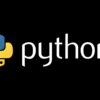The Internet of Things (IoT) has created a lot of buzz in the healthcare industry. Looking ahead, IoT is about to take over, and the possibilities are endless.
Here are 3 ways IoT is about to change healthcare as we know it.
Training
Doctors and medical students will be equipped with healthcare training devices that give feedback on patient symptoms. Also, the availability of devices will guide students in the completion of their CME courses. So, what is a CME? This is an educational activity that ensures healthcare professionals acquire knowledge and skills across medical specialties.
With IoT, it’s evident that data collection, networking, and processing are much needed to build an exciting career.
Continuing Medical Education (CME) helps those in the medical field to maintain competence. So even if you completed your medical school, the training doesn’t end there. To ensure you stay abreast with industry developments, you’ll be evaluated by experts in specific clinical areas. Furthermore, healthcare job placement assistance is vital in linking healthcare professionals to ensure professionals access development opportunities, ensuring competitiveness in their fields.
CME can be a requirement for specific certifications. Sometimes, you may be required to complete specific credits annually to maintain your license.
IoT has brought many innovations to the healthcare industry. It has impacted how the patients are diagnosed and treated. As medical facilities incorporate newer technology, you need some training to be conversant with the changes.
Inventory management
Health facilities have important documents, equipment, and medications that need to be controlled. IoT can help in inventory management to ensure they don’t fall in the wrong hands. Once you combine IoT with an ERP system, you can make the best business decisions.
In addition, ERP will help you track drugs for error-free processes. Rather than keep track of the numbers, you eliminate the need for scanning inventories. Still, the internet of things eliminates the bottlenecks that can halt the distribution of drugs.
As the industry continues to grow, healthcare providers should transition to ERP software like NetSuite. It can help in specific tasks like record maintenance, hospital management, and medical supply inventory.
A healthcare provider can benefit from accurate information and financial transparency. For successful NetSuite Implementations, you should:
Find the best NetSuite partner
You should work with a partner who understands your budget, goals, and customization needs. This will ultimately reflect how well they understand your healthcare needs. A great partner will ask the right questions and guide you through the implementation process effortlessly.
Open to ideas
Since your consultants will work closely with NetSuite software, you should be open-minded on the ways to handle processes. Will you need system analysis? What functions are in and out of the project scope?
With NetSuite, the healthcare team can track the inventory of surgical equipment and medical goods. Other reasons to adopt NetSuite are transparency and improving customer service. When you work with a trusted partner, you can deliver better care to patients.
Patient monitoring
In the past, patients could only be monitored under the care of nurses. With IoT, patients with serious conditions can be monitored wherever they are. In the future, IoT will improve mobility for mentally disabled patients. Also, doctors will receive alerts as soon as issues arise. And they will provide feedback on how to manage health. This can be helpful to patients with high blood pressure or blood sugar since such conditions require regular monitoring.
In the future, we expect more wearable devices from tech companies to detect and report emergencies to caregivers.
Hospitals will invest heavily in wearable devices to monitor blood pressure, sleep apnea, and other conditions. This flow of information will also help to detect health abnormalities. If a patient has a heart attack, an ambulance will be called automatically.
For increased independence, most homes will have complex sensor systems so patients can call for assistance in case of an emergency. These devices will be placed on refrigerators, cabinets, and other areas the patient interacts with daily.
For patients with mental illness, the caretaker will set a geofence with specific boundaries. Whenever they close the restricted areas, the caretaker will get an alert.
Another common problem for patients with Alzheimer’s disease is monitoring the keeping track of the prescribed medicine. Without the proper medication, this can result in serious side effects. IoT technology will automatically alert you whenever a patient removes a pill from a pack or bottle.
Final thoughts
We expect IoT to go beyond the wearables. This technology will allow users to get valuable information about patients to improve their lives. Not to mention, doctors will be aware of emergencies – the possibilities are endless. With IoT, the future of healthcare is poised to become better.





